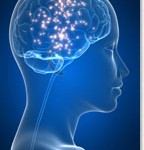Bulimia nervosa involves a recurring, emotionally driven cycle of compulsive consumption of large quantities of high-calorie food over a short period of time, followed by either induced vomiting or other compensating behaviors. Bulimics use various methods to purge, such as laxatives, drugs that induce vomiting, diuretics, excessive exercise, and fasting. Bulimia nervosa can be difficult […]
Fasting and Anorexia Nervosa
With anorexia nervosa, anorectics lose the ability to fast much in the same way that an alcoholic loses the ability to drink alcohol. It is reasonable to assume that—for the anorectic—fasting may never again be a safe practice, even after years of recovery. However, because fasting has previously been an essential feature in most anorectics’ […]
Orthomolecular Psychiatry
Nutritional therapy has its roots in orthomolecular medicine. Orthomolecular medicine is the practice of preventing and treating disease with optimal amounts of substances—usually nutrients—that are natural to the body. Orthomolecular psychiatry is a branch of orthomolecular medicine whose proponents believe that dietary supplements and other dietary restrictions can be effective in treating mental illness. The […]
Martial Arts in the Treatment of Depression
There are a number of martial art practices that have been researched in association with improving depression. Although any martial art will most likely help to alleviate the symptoms of depression, the following have received the most attention. Qigong The ancient Chinese practice of Qigong (pronounced “chee gung”), which involves meditation, breathing exercises, and body […]



